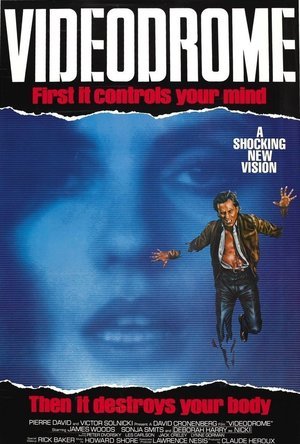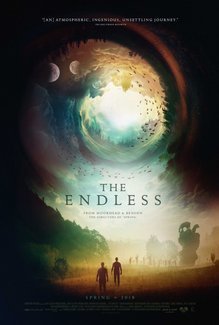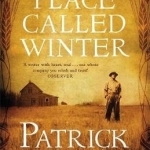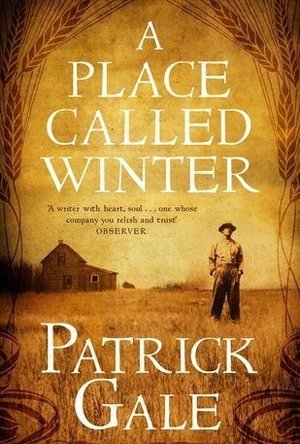David Schwartz recommended Videodrome (1983) in Movies (curated)
Tim McGuire (301 KP) rated The Endless (2018) in Movies
Oct 7, 2019

The Shannara Chronicles
TV Show
Based on the best-selling fantasy book series by Terry Brooks, "The Shannara Chronicles" follows...

Boost Sex Drive Hypnosis
Health & Fitness and Medical
App
◉ Overcome the feelings blocking your libido after listening daily for just 1–3 weeks ◉ Change...

Twister
Book
Now that I’ve graduated college, I’m expected to join the family accounting business even though...
Contemporary MM Romance
Hazel (1853 KP) rated A Place Called Winter in Books
May 28, 2017
Loosely based upon a true story, one of Patrick Gale’s ancestors in fact, A Place Called Winter follows the life of Harry Cane during the early 1900s. The book begins with Harry being transferred from a mental asylum to a therapeutic community called Bethel Ranch. The story then backtracks to Harry’s life as a young, nervous, motherless boy and the time he met his future wife, Winnie.
Throughout the book the reader is trying to guess the reason Harry eventually finds himself at Bethel Ranch. Gale describes Harry’s marriage, his discovery of homosexuality and his move to Canada to his final stop at a homestead in a place called Winter. Does Harry develop a mental illness or is it something to do with his scandalous desires? Or, does something else happen later in the book?
After moving to Canada, Harry does not exactly have it easy and the reader feels for him as he perseveres with his new life style. We watch him grow from a timid young man into someone with his own farm and independence. It makes it all the more upsetting to read when certain things take a turn for the worse.
In this historical novel, Patrick Gale emphasizes on the way homosexuality was regarded in society. Entire families cut people out of their lives at the slightest hint of a scandal. Gale also touches on the techniques used within mental asylums during this period as well as racial discrimination.
Occasionally, the story was difficult to read as it alternated between being really interesting and then slightly dull. Overall, regardless of how much was based on actual events, it was a good storyline, and once you have started reading you feel the need to continue to find out what happens to Harry. I have only read one other book by Patrick Gale – Notes From an Exhibition – that I struggled with a little. A Place Called Winter, however, was a lot better than I was expecting.
Bong Mines Entertainment (15 KP) rated Queen Naija by Queen Naija in Music
Jun 7, 2019
“MEDICINE”
The video finds Queen Naija, dressed in yellow attire, reading text messages on her phone. She confronts her man when he enters the room and addresses his cheating ways. Later, she gives him a taste of his own medicine.
The song was crafted during a detrimental time in Naija’s life when she was having problems with her ex. People wanted to know if she was staying with him or leaving. She recorded “Medicine” and perhaps her entire EP as a response.
“KARMA”
The video was captured inside Capitol Records’ Studio A. It finds Queen Naija in a pinstripe outfit singing her heart out about moving on from being hurt.
Her relationship turned sour after her ex-man started making money and got a sudden case of amnesia. He replaced Naija with a bunch of promiscuous women. So she applauded him for doing that by saying, “Congratulations to you, what you wanted is what you got now.”
“MAMA’S HAND”
Queen Naija dedicates a lovely song to her son. She promises to give him everything and encourages him to have optimistic thoughts about the future. But most importantly, she wants him to put God first and never let go of her hand while they travel through life and its unexpecting journey.
“BUTTERFLIES”
Queen Naija bears her soul, revealing she’s deeply in love. With perhaps someone new? She gets butterflies in her stomach whenever she sees him. Also, she’s thinking about getting into a relationship because she can’t let go of him. Ever since he crossed her path, her life hasn’t been the same.
“BAD BOY”
Queen Naija reveals she’s a good girl and this is her first time being in love with a bad boy. Although she loves their connection, she knows she has to be cautious and take her time. Also, she feels, maybe, her goodness will cause him to change for the better.
CONCLUSION
Queen Naija’s self-titled debut EP is a solid body of work. Produced entirely by 30HertzBeats, it contains charismatic instrumentation, soulful vocals, and charming melodies.
https://www.bongminesentertainment.com/queen-naija-debut-ep/
Hazel (1853 KP) rated A Place Called Winter in Books
Dec 17, 2018
Loosely based upon a true story, one of Patrick Gale’s ancestors in fact, <i>A Place Called Winter</i> follows the life of Harry Cane during the early 1900s. The book begins with Harry being transferred from a mental asylum to a therapeutic community called Bethel Ranch. The story then backtracks to Harry’s life as a young, nervous, motherless boy and the time he met his future wife, Winnie.
Throughout the book the reader is trying to guess the reason Harry eventually finds himself at Bethel Ranch. Gale describes Harry’s marriage, his discovery of homosexuality and his move to Canada to his final stop at a homestead in a place called Winter. Does Harry develop a mental illness or is it something to do with his scandalous desires? Or, does something else happen later in the book?
After moving to Canada, Harry does not exactly have it easy and the reader feels for him as he perseveres with his new life style. We watch him grow from a timid young man into someone with his own farm and independence. It makes it all the more upsetting to read when certain things take a turn for the worse.
In this historical novel, Patrick Gale emphasizes on the way homosexuality was regarded in society. Entire families cut people out of their lives at the slightest hint of a scandal. Gale also touches on the techniques used within mental asylums during this period as well as racial discrimination.
Occasionally, the story was difficult to read as it alternated between being really interesting and then slightly dull. Overall, regardless of how much was based on actual events, it was a good storyline, and once you have started reading you feel the need to continue to find out what happens to Harry. I have only read one other book by Patrick Gale –<i> Notes From an Exhibition</i> – that I struggled with a little. <i>A Place Called Winter, however, was a lot better than I was expecting. </i>
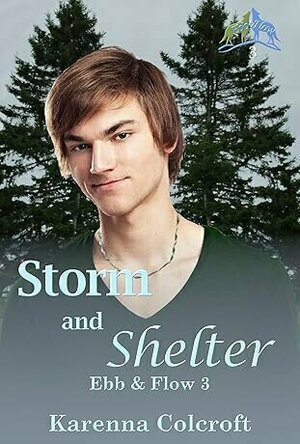
Storm and Shelter (Ebb & Flow #3)
Book
A year ago, Quinn Boucher was in his third year of university. He had plans. A life. And then in one...
Fantasy MM Romance
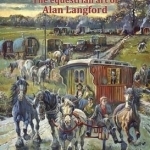
Welgora: A New Forest Artist's Book
Book
WELGORA: The Equestrian Art of Alan Langford is written by the New Forest artist Alan Langford and...
